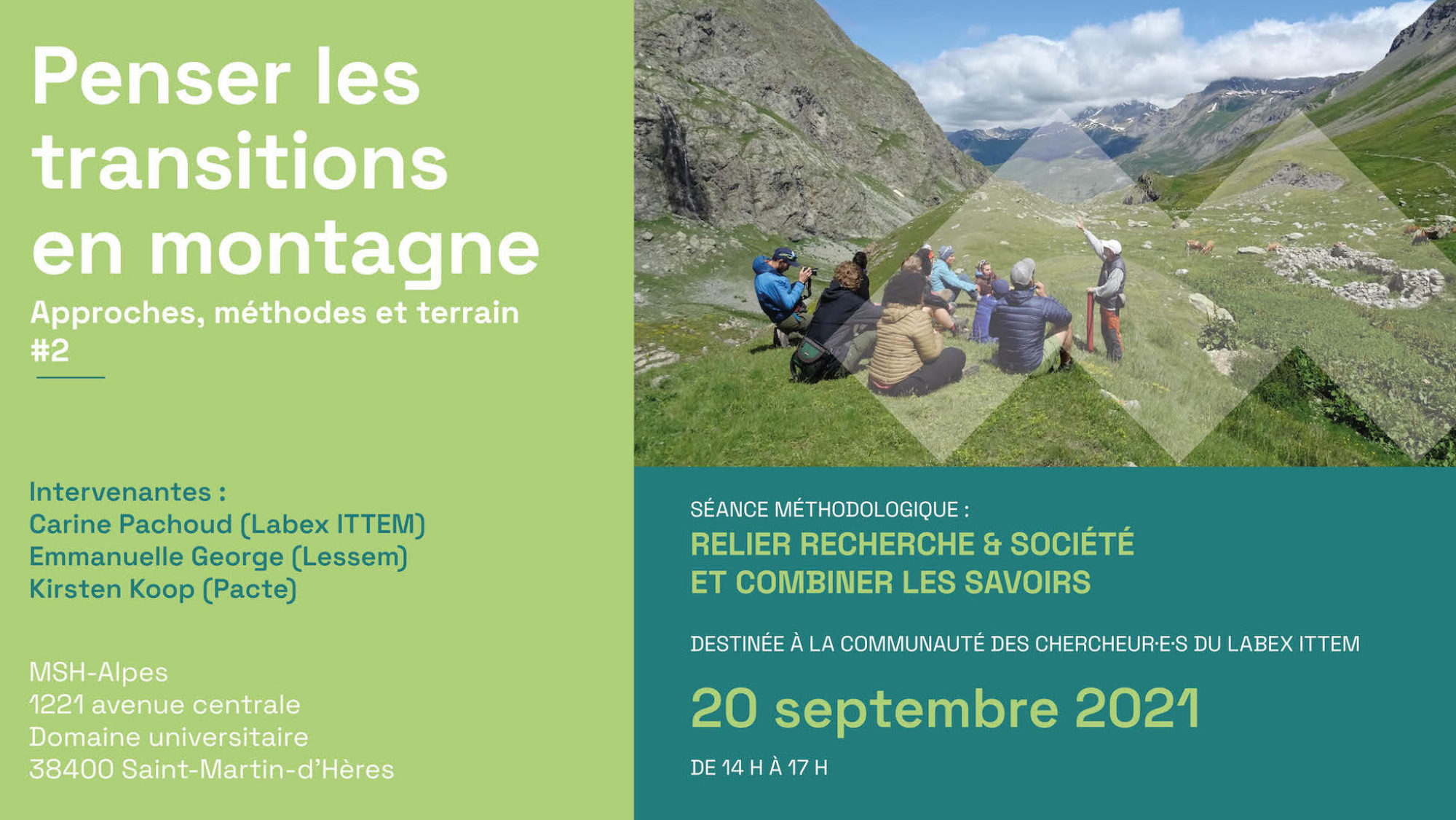Labex life
Labex ITTEM: transition in contact with local players

After analyzing the concept of transition at an initial seminar held on April 8, the community of Labex ITTEM researchers will be discussing the research methods and forms of collaboration developed with local players, looking at the needs, positive points, difficulties and effects of these collaborations in terms of transition and transformation.
The second part of this seminar on transition is jointly organized by Carine Pachoud (Labex ITTEM), Emmanuelle George (Lessem) and Kirsten Koop (Pacte).
By way of introduction, Carine Pachoud, post-doctoral researcher on “transitions and mountain territories” at Labex ITTEM, will take a general look at the issues involved in action research (definition, history…) and the ways in which field players can participate in research.
Secondly, three Labex researchers will present their research projects: Isabelle Boulangeat from the Lessem laboratory ( Refuges sentinelles project), Kirsten Koop from the Pacte laboratory ( Transformont project) and Karine Basset from the Larhra laboratory ( Singulariser les territoires de montagne project). They will attempt to answer a series of questions on the following issues:
- The posture of researchers: what roles do they play in transition processes? What is their level of commitment? How do they manage relations, and even proximity, with other players?
- The relationship between researchers and society: what types of stakeholders should they engage with? How can they be identified? How to manage conflicts and power relations between stakeholders?
- The articulation of knowledge: how can the knowledge of stakeholders be integrated with that of researchers? Can the former help the latter to evolve? What is the value of scientific knowledge, given the uncertainties associated with the transition?
Following these presentations, rotating workshops will enable researchers to confront these questions in the light of their own experiences. The day will conclude with a plenary session highlighting the strengths, as well as the difficulties and needs faced by researchers, with a view to initiating joint reflection on how to address them.
